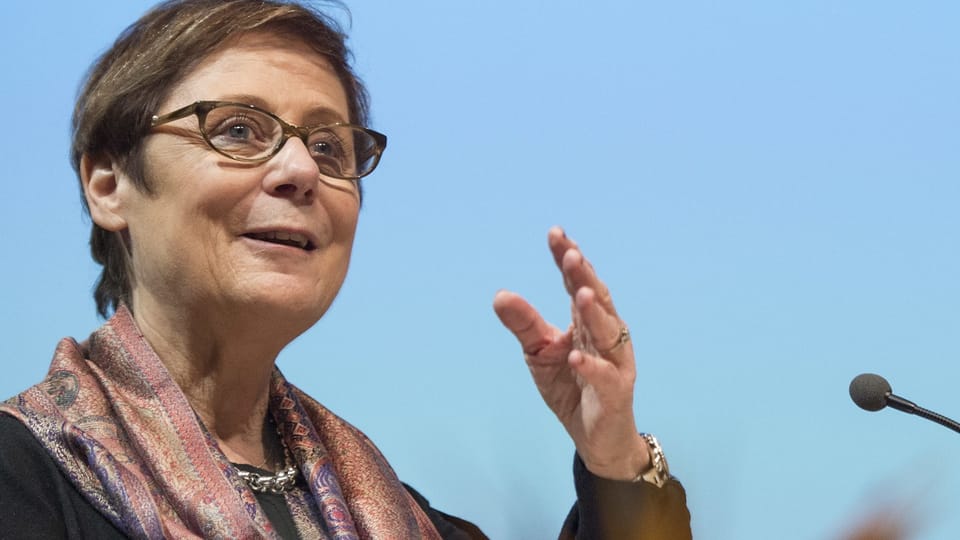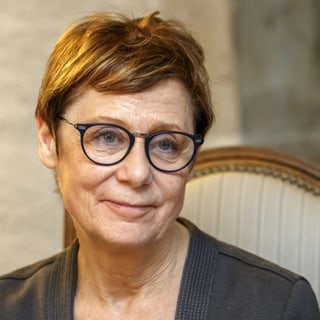She is stepping down – but her work is far from done: The President of the Federal Commission against Racism wants prevention and awareness-raising to continue. Racism is recognized as a problem in society: This is important in order to be able to fight against it, said Brunschwig Graf in an interview with SRF.
SRF News: Martine Brunschwig Graf, you are stepping down at a moment when the issue of racism – and anti-Semitism – is more relevant than ever.
Martine Brunschwig Graf: Whenever there is war in the Middle East, there is more anti-Semitism in Switzerland – unfortunately. Events abroad have an influence on racism in Switzerland. Polarization is particularly great at the moment.
You have to know the phenomenon before you can fight it.
You have to be careful that the situation doesn’t escalate. Everyone has to take part and fight against anti-Semitism and racism. Crises are no reason to propagate anti-Semitism.
During your term in office, the number of incidents reported to advice centers rose sharply – for example from situations at work, in the educational environment or in dealings with administration.
One cannot conclude from this that racism is increasing. What we know: Today, more people are turning to counseling centers if they experience racist discrimination. That was also the goal, that these people had the courage and came forward – and that their story could be heard and conveyed.

Legend:
Martine Brunschwig Graf was President of the Federal Commission against Racism for twelve years. (Image: Closing event of the “Colorful Switzerland” campaign of the Federal Commission against Racism, FCR, November 20, 2015.)
KEYSTONE / Peter Schneider
Racism is more of an issue today – and isn’t that just negative?
According to surveys by the Federal Statistical Office, 60 percent of people today think that racism is a social problem in Switzerland. That’s good. Because if people thought everything was fine, we wouldn’t be able to take any preventative measures and our work wouldn’t be relevant at all. This awareness is central to being able to combat racism.
Where do you start?
We support prevention measures and awareness-raising. To achieve this, we create important foundations with studies and analyses. For example, we found that the topic of racism does not appear in the curricula. We also observe how the anti-racism criminal law is dealt with and talk to the media about the images they convey.
If you always make noise, people won’t listen anymore.
While the SVP described its commission as a “censorship authority” during the election campaign, NGO circles increasingly want a more proactive approach.
It’s our role to say when things go too far. It’s not about whether a statement is punishable or not, but about taking responsibility for the mood in the country. But we are not activists and not an NGO. We speak up when it is important or when we are asked. Because if you keep making noise, people won’t listen anymore. Racism must not become banal.
What challenges do you see for the future?
Hate speech on the Internet is already an issue today. What happens on social networks and elsewhere on the Internet will continue to concern us. We have therefore launched the reportonlineracism.ch platform, where racism can be reported online. This is important because you have to understand the phenomenon before you can combat it.
The interview was conducted by Felicie Notter.
